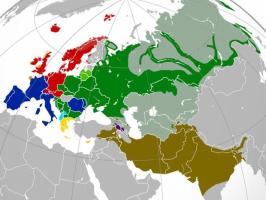Copy Link
Add to Bookmark
Report
AIList Digest Volume 5 Issue 208

AIList Digest Wednesday, 2 Sep 1987 Volume 5 : Issue 208
Today's Topics:
Queries - Hypertext & Humble Expert System Shell &
Prolog on the Sun & VM Lisp,
Database - AI References,
Logic - Beyond Mr.P and Mr.S.,
Humor - The House of (Knowledge) Representatives,
Philosophy - Programming as Experimental Science
----------------------------------------------------------------------
Date: Mon Aug 31 16:35:16 1987
From: omepd!littlei!foobar!sdp!sdp@seismo.CSS.GOV
Subject: Hypertext
Hello,
Source code from _AI_Expert_ magazine used to be available in the newsgroup
comp.ai. They seem to have stoppped posting them. Does anyone know what
happened?
[I had to drop code listings from the AIList subject matter.
David Streiff%HARTFORD.BITNET took over Bitnet distribution.
I don't know a good source for other networks. -- KIL]
I'm looking for a program called HYPE. It's a small hypertext editor written
in Turbo Pascal.
Anyone know of any other interesting PD hypertext code?
Is there a hypertext mailing list or discussion group anywhere on the net?
Is there demand for one?
Thanks,
Scott Peterson
OMO Software
Intel, Hillsboro OR
sdp.hf.intel.com!sdp
omepd.intel.com!littlei!foobar!sdp!sdp
------------------------------
Date: 31 Aug 87 16:21:32 GMT
From: umnd-cs!umn-cs!umdcs@ucbvax.Berkeley.EDU (The UMD Guy .. )
Subject: Humble Expert System Shell
I am interested in hearing from anyone who is using Smalltalk/Humble
particularly (especially) on a Mac. A few questions:
Is one meg of memory enough?
Are there any bugs that can't be worked around?
(e.g. Tracing forward and backwards for rule explanation)
Does Humble integrate with any other packages, if so, which?
Thanks in advance ..
-Jeff
------------------------------
Date: 1 Sep 87 21:22:37 GMT
From: mtune!mtgzy!mas@RUTGERS.EDU (m.a.shariff)
Subject: Prolog on the Sun
Does anybody out there have a list of Prolog's available
for a Sun machine, preferably with comparative performance ?
Thanks
Masood Shariff
AT&T Middletown, NJ 07748
(201) 957-5479
...!mtgzy!mas
------------------------------
Date: 31 AUG 87 11:04-EDT
From: TEACH07%UC780.BITNET@wiscvm.wisc.edu
Subject: VM Lisp
I have a friend, Ron Jewell, who has devoted considerable time
and energy to developing a readable user manual for VM Lisp.
The manual is being used by an instructor at the University of
Maryland for teaching Lisp. Ron is interested in making contact
with other sites using VM Lisp in order to share information on
the product and his manual. Anyone out there using VM Lisp?
------------------------------
Date: 31 Aug 87 15:17:00 GMT
From: ihnp4!inuxc!iuvax!tenny@ucbvax.Berkeley.EDU
Subject: AI references
Many thanks to all those kind-hearted netlanders who contributed to the
AI reference database. Unfortunately, some of you provided return addresses
to which all reply attempts failed. In an effort to get the database to
these contributors (and everyone else), the database is now available via
anonymous ftp from iuvax.cs.indiana.edu.
The file of interest is: pub/references/ai.bib
Larry Tenny
tenny@iuvax.indiana.edu
------------------------------
Date: 28 Aug 87 22:05:37 GMT
From: vanhove@XN.LL.MIT.EDU (Patrick Van Hove)
Subject: Beyond Mr.P & Mr.S.
I had a somewhat different story of the same type.
A door-to-door vacuum cleaner sales person tries his pitch to
this uncompassionate mother-at-home-with-kids-screaming-behind
and after two minutes, the following dialog ensues
mother: Before you go any further, I just want to see if you are really
as much >mister-smart< as you pretend. Let's see.
My husband noticed a while ago that since the last birthday,
the product of the ages of my three daughters is exactly
the number on our house. If I add that the sum of their ages
is 13, can you figure out how old they are?
(Note:
integer ages;
integer house-numbers;)
salesman (after thinking for a while):
Well, I think I'm sorry I can't
mother: OK, you're right, I made it tough on you, but I have to go
now and drive my oldest daughter to her piano lesson.
salesman:
Your oldest daughter? Well then, I think I know the answer now:
their ages are >CENSORED<, >CENSORED< and >CENSORED<.
mother: Now I'm impressed! I'll get a dozen of those cleaners of yours.
Well, reader, can you figure it out now? Of course you don't even
know the number on the house, but who said this was going to be easy?
Patrick
"No wind today, so I'm hacking"
------------------------------
Date: Fri, 28 Aug 87 22:58:12 EDT
From: "Keith F. Lynch" <KFL@AI.AI.MIT.EDU>
Subject: S and P Puzzle
I first saw it in November 1978, in a slightly different form.
...Keith
------------------------------
Date: 1-SEP-1987 15:34:25
From: UBACW59%cu.bbk.ac.uk@Cs.Ucl.AC.UK
Subject: The House of (Knowledge) Representatives.
It is proposed that the legislature be replaced by expert systems.
The only problem seems to be that there might be a lack of discourse,
since each system would be a perfect model of human intelligence, and
therefore the house could not fail be of one mind.
The Joka.
------------------------------
Date: Fri, 28 Aug 87 13:00:41 bst
From: Mike Wilson <mdw%vax-d.rutherford.ac.uk@Cs.Ucl.AC.UK>
Subject: Empirical AI ?
In V5 #201 Andrew Jenning suggested that AI is empirical research.
In V5 #205 Spencer Star countered that it is not since programs do not
confirm or disconfirm theories and do not yield replicable quantitative
results.
Programs are implementations of models. Models are instantiations of
theories. Theories suggested by a large range of cognitive scientists
can be empirically tested by writing programs (e.g. Newell, Anderson,
Johnson-Laird, the PDP group, Norman and Rumelhart etc...). If the theory
states that certain phenomina can be produced from a set of
processing assumptions and a set of data, and a program embodying
these assumptions and using such data cannot produce the phenomina
to an level of abstraction acceptable to the theory, then the
theory is disproved.
The requirement that enables programs to
act as tests is that the instantiating and implementational
tradeoffs made are not contrary to any part of the theory. The
instantiation and implementation processes may involve the recruitment
of additional assumptions to those in the theory, which the theorist
may wish to add to the theory, but this is optional; these additional
assumptions specify a program which is one of a set of programs which
could be derived from the theory. The test can be replicated using
other programs derivable from the theory. The use of models (implemented
in programs or toy construction sets) can act as tests of theories.
Michael Wilson
SERC Rutherford Appleton Laboratory
U.K.
------------------------------
Date: 28 Aug 87 13:22:12 GMT
From: Michael P. Smith <mps@duke.cs.duke.edu>
Reply-to: mps@duke.UUCP (Michael P. Smith)
Subject: Re: Should AI be scientific? If yes, how?
Article-I.D.: duke.10112
In article <8708251656.AA14266@cs.utah.edu> cs.utah.edu!shebs@cs.utah.edu
(Stanley Shebs) writes:
>
>Goedel's and Turing's ghosts are looking over our shoulders. We can't do
>conventional science because, unlike the physical universe, the computational
^^^^^^^^^^^^^^^^^
>universe is wide open, and anything can compute anything. Minute examination
^^^^^^^^^^^^^^^^^^^^^^^^^^^^^^^^^^^^^^^^^^^^^^^^^^^^^^^^
>of a particular program in execution tells one little more than what the
>programmer was thinking about when writing the program.
>
[emphasis added]
Would you please explain this tantalizing remark? Surely not every
formal system can compute every function (what about the ghost of
Chomsky?). Are you alluding to the mutual emulatability of Turing
machines? Or maybe the moral is functionalism (as philosophers use
the term): that in matters computational, it's form and not matter
that matters. And how does Goedel fit in? I suspect it's his
completeness theorem and not his incompleteness results you have in
mind. Finally, how does the third sentence follow from the second?
Thanks.
"Just as a vessel is a place that can be carried around, so place is a
vessel that cannot be carried around." Aristotle
Michael P. Smith ARPA: mps@duke.cs.duke.edu
------------------------------
Date: Fri, 28 Aug 87 11:34 EDT
From: rjz@JASPER.Palladian.COM
Reply-to: rjz%JASPER@LIVE-OAK.LCS.MIT.EDU
Subject: Re: Natural kinds
In McCarthy's message of Jul 10, he talks of the need for AI
systems to be able to learn and use "natural kinds",
meaning something like "empirically determined categorizations
of objects and phenomena in the experience of an individual".
A response by Causey (Jul 18) describes a "natural kind"
as something with "nomologically determined attributes",
and specifically distinguished this from a "functional concept"
such as a chair.
First: what is the correct definition of a "natural kind"
in philosophical usage? What precisely does it cover,
and why can't a "functional definition" define a natural kind?
Second: Sidestepping the terminological issue,
McCarthy's original point is the more crucial:
that people seem to be able to classify objects in the
absence of precise information.
This is important if individuals are to "make sense" of their world,
meaning they are able to induce any significant
generalizations about how the world works. It seems clear
that such generalizations must allow "functional definitions";
how else would we learn to recognize chairs, tables, and
other artifacts of civilization?
Perhaps we could call this expanded notion an "empirical kind".
Third: Such "kinds" are especially important for communicating with other
individuals, since communication cannot proceeed without
mutually-accepted points of
reference, just as induction cannot proceed without "natural kinds".
Being based on individual experience, no two persons' conceptions of
a given concept can be assumed to correspond
_exactly_. Yet communication is for the most part not deterred
by this. It would be a great convenience,implementation-wise,
if this meant that precise definitions of "kinds" are
unnecessary in [AI] practice.
Roland J. Zito-wolf
Palladian Software
Cambridge, Mass 02142
RJZ%JASPER@LIVE-OAK.LCS.MIT.EDU
------------------------------
Date: Fri, 28 Aug 87 13:04:19 pdt
From: Eugene Miya N. <eugene@ames-pioneer.arpa>
Subject: Re: AIList V5 #201 - Philosophy of Science, AI Paradigms
In article <556829438.star@h.gp.cs.cmu.edu> Spencer Star wrote:
>In V5 #201 Andrew Jenning suggests that AI is empirical research when a
>programmer writes a program because we have some definite criteria:
>either the program works or it does not. Unfortunately, this view is
>rather widespread. Also, it is wrong.
It fact, it was a rather well known AI researcher who reinforced this
view. I liked Stan Steb's posting just before this one which took a
more forward looking view [I had minor disagreements, but who cares].
What AI SHOULD be: more concern with the empirical, more experimental in
the traditional sense of the word, let's at least give these reviewers
and Don Norman a positive nod, and try to improve the WAY we do our
work, as well as try to improve our work.
--eugene
------------------------------
End of AIList Digest
********************























